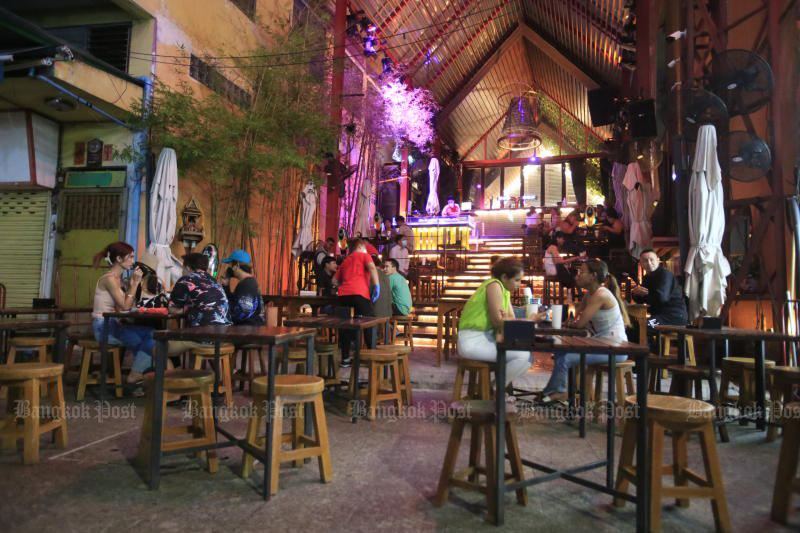
Night entertainment venues nationwide remain shut until at least mid-January, according to the Centre for Covid-19 Situation Administration (CCSA).
CCSA spokesman Taweesilp Visanuyothin said the CCSA meeting chaired by Prime Minister Prayut Chan-o-cha decided to defer by another month a plan to allow pubs, bars and karaokes to reopen on Dec 1.
The new tentative reopening date was set for Jan 16 and only for some areas, depending on the Covid-19 situation.
"We need time from Nov 15 to Jan 15 to prepare for the reopening," Dr Taweesilp said.
Since the country reopened on Nov 1, alcoholic drinks have been allowed only in restaurants and eateries in Bangkok, Krabi, Phangnga, and Phuket.
Operators of the night entertainment venues have been asking the government to lift the alcohol ban in 17 tourism provinces and to allow pubs, bars and karaokes nationwide to reopen on Dec 1.
They hoped for the business resumption after Gen Prayut's Oct 11 speech on reopening the country.
"By Dec 1, we will also consider allowing the consumption of alcoholic beverages in restaurants, as well as the reopening of entertainment venues under appropriate health precautions to support the revitalisation of the tourism and leisure sectors, especially during the new year period," he said in the national address.
The Public Health Ministry had been the key agency proposing the delay after consulting with other agencies. The CCSA had indicated that it would follow the direction set by the prime minister.
Dr Taweesilp said on Friday the Covid task force remained worried that the reopening of night entertainment businesses could lead to more infections if no appropriate measures had been in place. Inadequate ventilation and congestions were among its key concerns, he added.
As for travel, the spokesman said the CCSA was considering relaxing rules for travellers by replacing the mandatory RT-PCR testing with antigen kit testing for vaccinated tourists.
The government currently requires all inbound travellers to book and stay in a hotel room for at least one night while their mandatory RT-PCR tests are being processed, which takes at least six hours. By switching to antigen kits, the results will be known in minutes but the accuracy rate won't be as high.
Dr Taweesilp said the RT-PCR was the most reliable test and the CCSA was studying the pros and cons of the change. Other relaxations, including the approval of arrivals from more countries and more provinces for travellers to visit, are possible in the future, he added.
